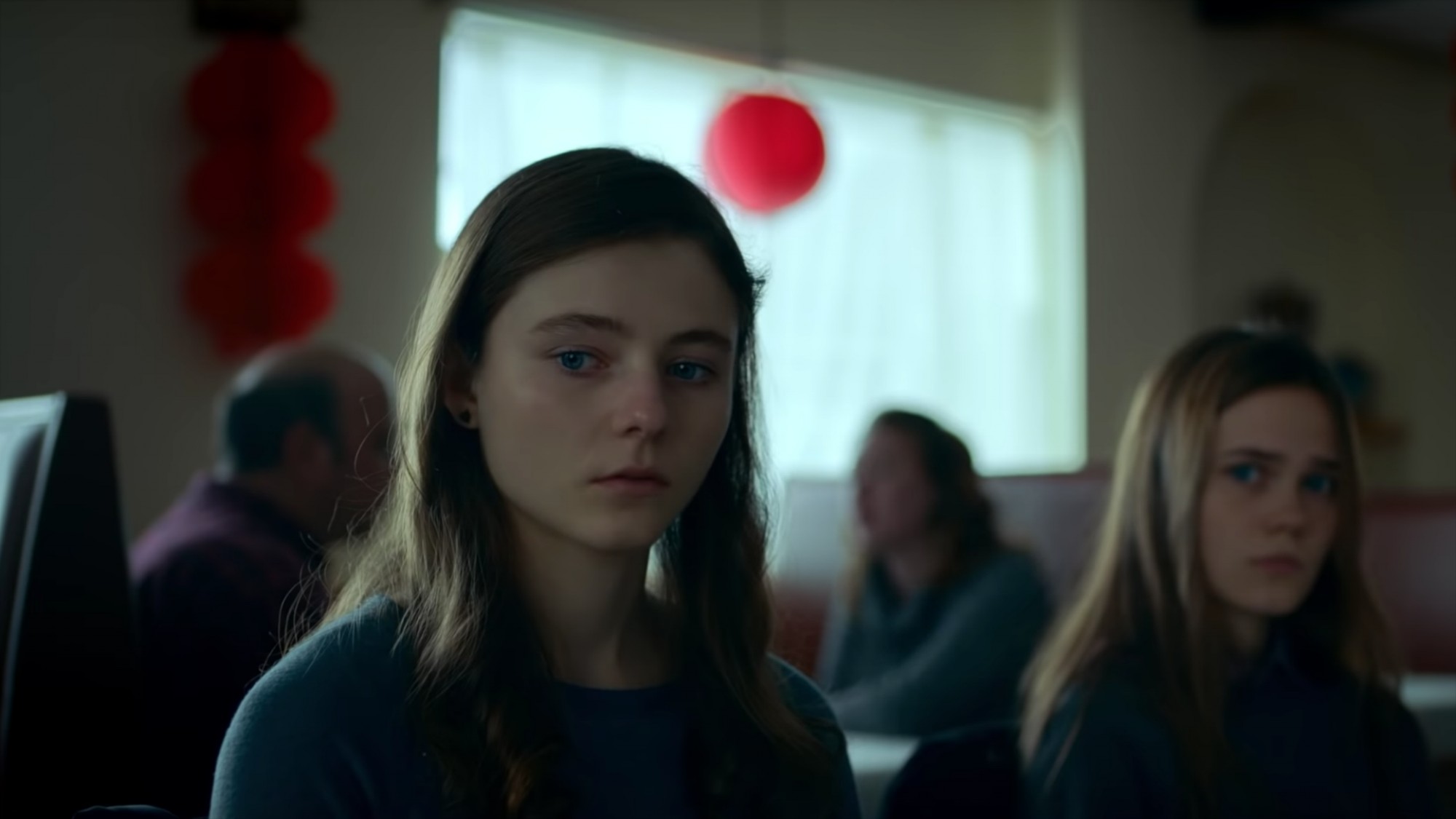Lost Girls is heartbreaking, alternating between bleak reality and the bittersweet hope that comes with unwavering persistence. The film, based on a true story, follows a woman’s fight to find her missing daughter and the numerous other lost girls she finds along the way.
Despite its true-crime premise, the film branches off from its genre’s tropes to focus on the personal lives of its victims rather than a search for clues and profiles of killers. This perspective strengthens the film, poetically giving voice and life to the women that were ignored and dismissed by the police department for so long. The opening scene is a terrifyingly shaky and disoriented view of the eldest daughter, Shannon’s, attempt to escape her untimely death amidst the backdrop of a haunting rendition of “Beautiful Dreamer.” Most of the beginning of the film is visibly very dark and barren, encapsulating that certain kind of small-town hopelessness that washes over many American cities. Marie Gilbert (Amy Ryan), the mother, struggles to make ends meet while working two jobs and caring for her two youngest daughters. She takes no shit; her fortitude is strengthened by the silent lack of a soundtrack for the remainder of the movie. Sherre (Thomasin McKenzie), Marie’s youngest, is bold and kind and watchful over her troubled little sister Sarra (Oona Laurence). She’s as much as a leader as her mother and seeks to bring together where her mother wants to forge forward alone. Thrown into the spotlight, Marie struggles to defend her motherhood and keep her missing daughter fresh in the minds of the police while the younger sisters cope with secrets and revelations they’d been blind to before Shannon’s disappearance. Connecting with other affected women, the audience begins to see a wider spectrum of reaction to the disappearance of their sisters, daughters, and friends. One victim blames herself and puts herself in harm’s way, another solemnly accepts the peace of at least knowing what befell her daughter, terrible as it may be. Despite this mess of regret and sorrow, the women all come together to talk, mourn, and understand. In a break from the bleak, the women all sing a commemorative hymn to the missing, the humming reverberating past their memorial and into the following scenes in a powerful and reflective display of solidarity. These heart-wrenchingly sweet moments interrupt the chilling details of this case, and help the audience empathize with these complex women.

Another important player in this story, aside from the victims, is the police department. Something I did not enjoy about the movie was the lack of explanation given to the department’s unaffected negligence. The leading officer, Richard Dromer (Gabriel Byrne), is generally sympathetic in his dealings with Marie despite his unwillingness to take a full and expedited charge on the case. Another supporting officer, Dean Bostick (Dean Winters), easily summons hate from the viewer with his disrespectful remarks and blatant disregard for the lives of a “couple of hookers.” It’s understood that this officer is sexist and irresponsible, but that fact alone is not enough to explain how an entire organization allowed evidence to be lost, suspects dismissed, and areas left unsearched. Though the unwillingness to act by the police is part of the tragedy and frustration that surrounds the preventable deaths of these young girls, but the lack of character built onto these officers who make up a good part of the story make the film less realistic. Some added depth and understanding of this particular police department would have created a more informative retelling, while still allowing the humanity of the grieving families to take precedence over the gruesome killer.
3/5 STARS
